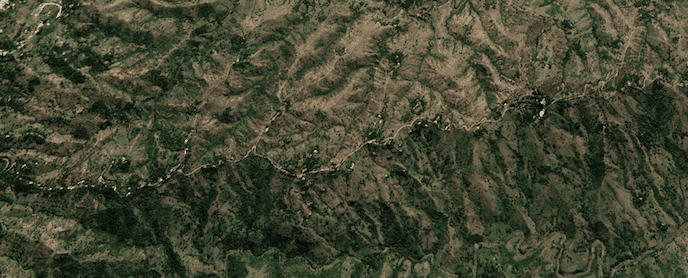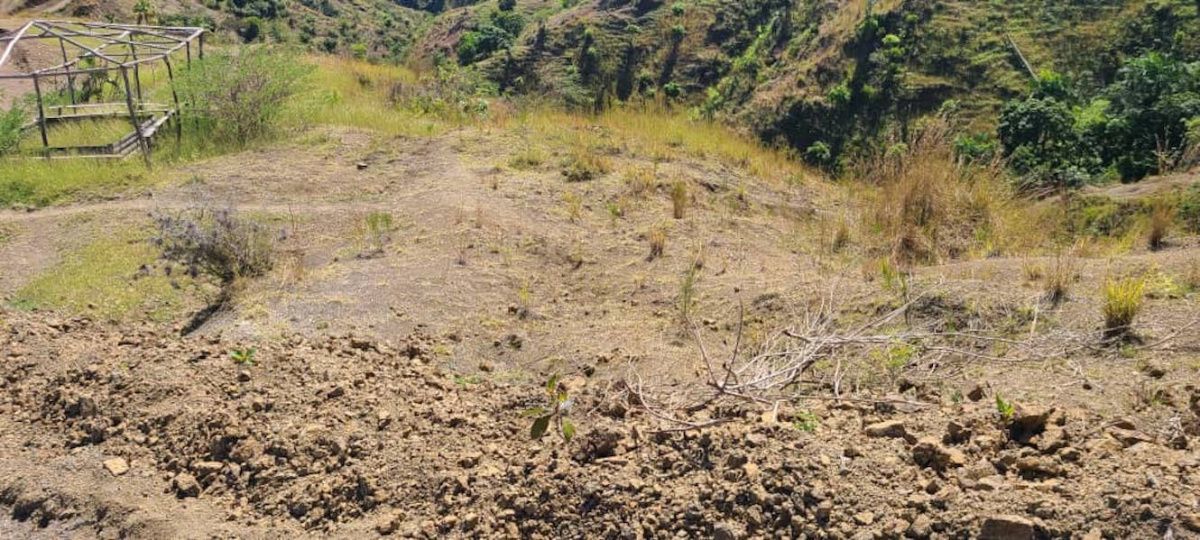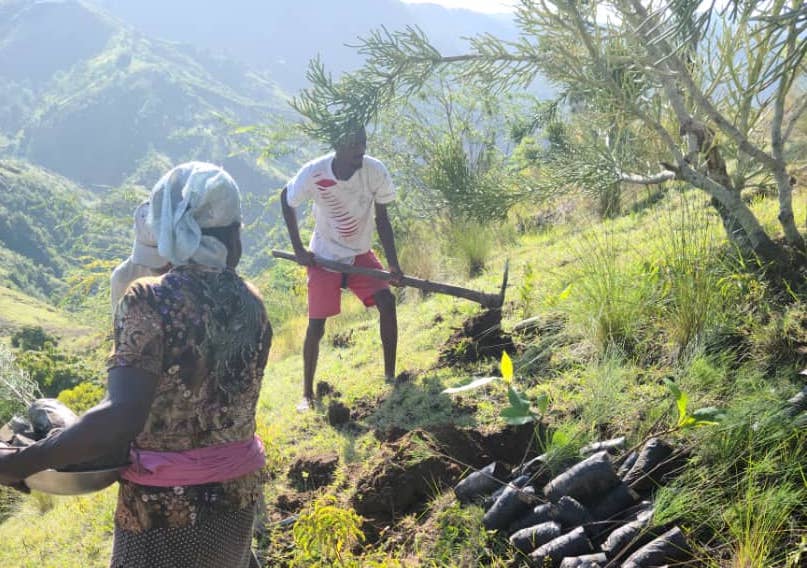The project, which took place over 3 years, went through many difficulties related to malfunctions in the irrigation systems but also to the socio-political context of the country. Nevertheless, 200,000 trees were finally planted in the valley. A relieving news, given the impact of the economic and social crisis on local communities.

Planting trees to increase the population’s standard of living
Haiti is currently the poorest country in Latin America. Currently, the situation shows few signs of improvement, due to the political and economic instability that remains within the country, but also to the devastating impact of natural disasters. For example, the cost of Hurricane Matthew in 2016 is now estimated at $2 billion.
At the same time, the national currency, the gourde, is constantly devaluated, a dramatic phenomenon considering that Haiti imports 4 times more than it exports. The population's purchasing power is therefore deteriorating in the face of growing inflation. In order to help improve the living conditions of local communities, Reforest'Action and its partners in the field, the OJUCAH association and the Dutch Red Cross, were mobilized on site to deploy a vast forest creation project.
Indeed, the planting of 200,000 trees in the Jacmel valley has had several benefits for the population, beyond the ecological advantages it represents:
The project has been a source of employment for many struggling families, which has helped increase their purchasing power. Indeed, the income collected allowed them to send their children to school. Now, these families can also provide their children with hot meals every day, which was not always the case before," notes OJUCAH.
From an environmental perspective, the introduction of these 200,000 trees will bring multiple benefits in the long run. The trees will reduce soil erosion and improve soil quality, which will increase the productivity of the crops managed by the communities.

Thanks to the sustainable production of timber, the energy needs of the population will be met, if no alternative to charcoal is found. For the city, the implementation of the project could be an opportunity to develop a wood industry, while respecting the ecosystem in place.
Raising awareness on the importance of forests
This project, which would not have been possible without the participation of local communities, was an opportunity to raise awareness among workers and their children about the value of forest ecosystems and the many benefits they represent. In the field, 7 people from OJUCAH's central committee, 1 agronomist, 8 nurserymen and 25 young people representing the project's monitoring committee were mobilized to organize the last planting sessions and to support the 650 workers who took part in this large-scale project.

In this last phase of the project, field activities were organized around musical events, songs and dances to celebrate the end of this long-term process. During the final work sessions, the mayors of the communes of Bainet and Jacmel as well as other local authorities expressed their gratitude to OJUCAH, the Dutch Red Cross and Reforest'Action for bringing this project to fruition.
The forest in the making is now destined to grow alongside the local communities of Lavial. This symbol of solidarity and unity between citizens and stakeholders reaffirms the need to implement social and environmental projects, despite the divisions in the country.